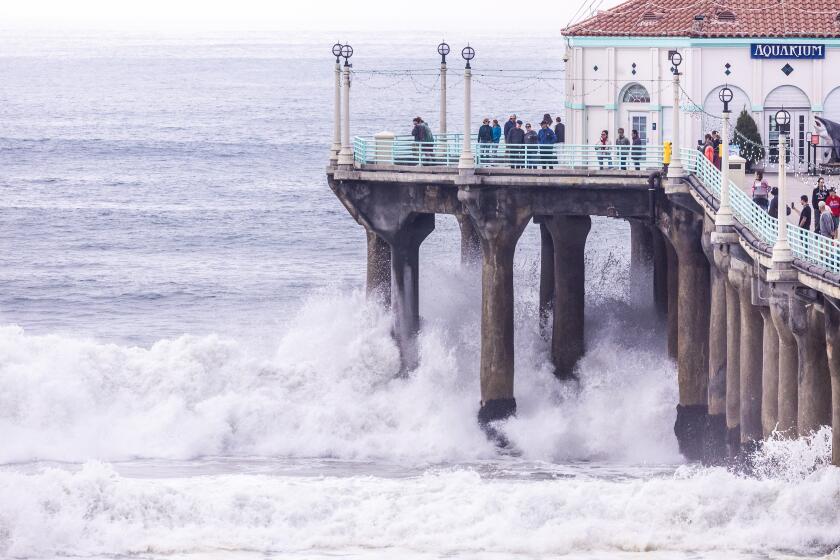Plans for New Facilities in Legal Limbo : Judge Upholds Rejection of Jail Tax OKd by Voters
Leaving San Diego County’s plans for new jails and courts in legal limbo, a Superior Court judge Monday upheld his March ruling invalidating a half-cent sales tax narrowly approved by voters last June to raise $1.6 billion for criminal-justice facilities.
Reaffirming his March 23 decision, Riverside County Superior Court Judge Gordon Burkhart rejected San Diego County officials’ request that he set aside his earlier order that struck down Proposition A, thereby setting the stage for a possibly protracted appeals battle.
In his decision, Burkhart declared the half-cent sales tax illegal on the grounds that its 50.6% countywide approval at the polls fell short of the two-thirds margin mandated by Proposition 13, the landmark 1978 property tax-cutting initiative approved by statewide voters in 1978.
Appeals of Burkhart’s decision, expected to ultimately reach the state Supreme Court, could last as long as two years, according to lawyers on both sides of the case.
Collection to Continue
During that period, the half-cent sales tax will continue to be collected, but county officials have indicated that the funds will not be spent unless Burkhart’s order is overturned.
If, on the other hand, the 4th District Court of Appeal and the California Supreme Court uphold the judge’s ruling, the local sales tax would be temporarily rolled back to enable local consumers to recoup the funds “illegally” collected under Proposition A.
Over its 10-year life, it is estimated, Proposition A, which raised the local sales tax to 7%, will generate $1.6 billion for new jails and courts to alleviate San Diego’s longstanding jail crowding and a badly overextended court system.
Heard in Riverside County
The lawsuit against the tax, filed on behalf of leaders of the San Diego County Libertarian Party, was heard in Riverside County because of San Diego judges’ conflict of interest in a matter affecting courtroom space.
Officials representing San Diego County and the Regional Justice Facility Financing Agency, the board set up to administer Proposition A’s revenues, argued that 1987 state legislation that set the stage for last June’s Proposition A election stated that a majority vote would be sufficient for passage.
The seven attorneys who filed the lawsuit for the Libertarians, however, described that 1987 bill as a sham that violated both the spirit and the letter of Proposition 13--an argument that Burkhart sided with in his ruling.
More to Read
Sign up for Essential California
The most important California stories and recommendations in your inbox every morning.
You may occasionally receive promotional content from the Los Angeles Times.










